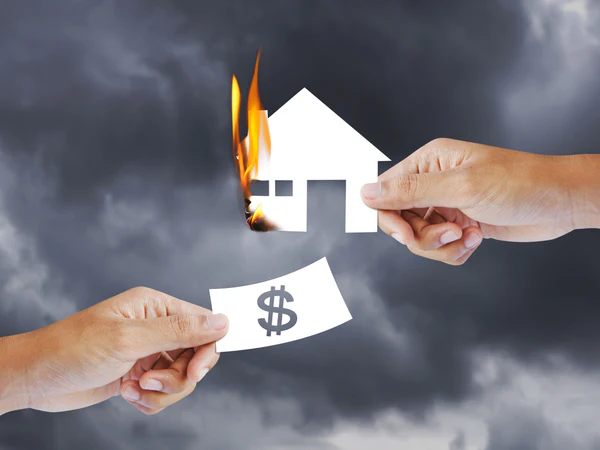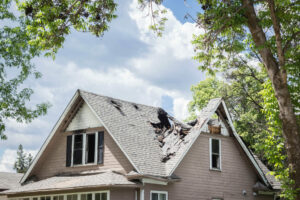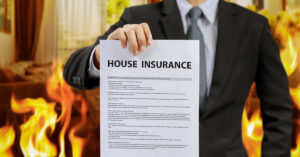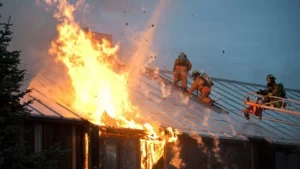Introduction to Fire Insurance
When disaster strikes, the damage can be both devastating and unpredictable. A fire, in particular, is one of the most destructive events a property owner can face. Fire insurance acts as a financial safety net during these uncertain times, ensuring that you’re not left to bear the full brunt of the damage. Whether you own a home, a business, or both, fire insurance is a critical safeguard for your assets, offering peace of mind that if the worst happens, you’ll have the support you need to recover.
Understanding the Basics of Fire Insurance Coverage
At its core, fire insurance is a specific type of property insurance designed to cover damages and losses caused by fire. Typically, this policy extends beyond just the flames themselves, often covering damage from smoke, heat, and even water or chemicals used by firefighters to put out the blaze. Fire insurance can be tailored to include replacement or repair costs for buildings, fixtures, furniture, and even personal belongings depending on your policy terms. However, it’s essential to read the fine print, as policies may include exclusions for specific types of fires, like those caused by war-related acts or intentional arson by the property owner.
Who Needs Fire Insurance?
You may think fire insurance is more relevant to homeowners or businesses located in wildfire-prone areas. The truth is, fire insurance is a necessity for anyone with valuable property, regardless of geography. Fires can happen anywhere, from accidental electrical shortages in urban apartments to lightning strikes on suburban homes. For businesses, the risk often extends beyond structural damage to financial losses from operational downtime. Recognizing these risks, whether you’re a renter, landlord, homeowner, or business owner, is the first step to protecting your investment with fire insurance.
Factors Affecting Fire Insurance Premiums
Not all fire insurance policies cost the same. The premium you’re quoted often depends on several factors. Your property’s location plays a critical role, as insurers evaluate the likelihood of fire hazards like wildfires or urban overcrowding. The type of construction, materials used, and the age of the building can also affect premiums since older structures or flammable materials carry a higher risk. Additionally, the presence (or absence) of safety features like smoke detectors, sprinkler systems, and fire extinguishers impacts your rates. Even your claims history can factor in—properties that have experienced past incidents may come with heftier premiums.
How to Choose the Right Fire Insurance Policy
Choosing the right fire insurance policy requires striking a balance between adequate coverage and affordability. Start by assessing the value of your property and assets; understanding what you need to protect will guide your decision. Research different insurers and their reputations—some may offer better claim-handling experiences than others. Be sure to read the fine print of what’s covered and what’s excluded. Opt for a policy with a suitable deductible and always check for add-ons like coverage for alternate living arrangements, debris removal, or loss of business income. Consulting an insurance broker can also provide personalized insights based on your needs.
Steps to Take After a Fire Incident
Experiencing a fire can be overwhelming, but knowing what to do afterward can significantly expedite the recovery process. First, ensure everyone’s safety and call emergency services immediately. Once the fire has been handled, notify your insurance provider promptly to begin the claims process. Document the damage thoroughly with photos and videos before making temporary repairs to prevent further deterioration. Keep all receipts of expenses related to repairs or alternate accommodations if required. Work closely with your insurance claims adjuster, providing all necessary documentation, to ensure the process is seamless and you receive compensation promptly.
Common Misconceptions About Fire Insurance
There are several myths surrounding fire insurance that can lead to misunderstandings. One common misconception is that standard homeowners’ insurance already provides extensive fire coverage. While basic fire damage may be included, it often lacks coverage for related damages like smoke or water. Another myth is that fire insurance is unnecessary if you have a fireproof home—no building is immune to fires, especially when accidents or external factors are involved. Additionally, some people incorrectly believe that fire insurance is prohibitively expensive, when in reality, the risks of going uninsured far outweigh the premium costs. Dispelling these misconceptions can empower you to make informed decisions about protecting your assets.
The Future of Fire Insurance
The fire insurance industry is rapidly evolving, driven by advancing technology and climate challenges. With the increasing frequency of wildfires in certain regions, insurers are adopting predictive analytics and AI to assess risks more accurately. Many companies are also incentivizing proactive measures, such as offering discounts for installing smart fire detection systems. Additionally, as sustainability grows in importance, insurers are beginning to offer tailored policies for green or energy-efficient homes. While the fundamental purpose of fire insurance has remained the same, innovative solutions are transforming how businesses and individuals approach risk assessment and coverage in the years to come.
Protecting Your Assets with Fire Insurance
A fire can destroy not only property but also the sense of security that a stable home or business provides. By investing in fire insurance, you’re not just protecting your physical assets—you’re safeguarding your financial future and peace of mind. The cost of rebuilding after a fire can be astronomical, but with the right policy, you’ll have one less thing to worry about. Take the time to understand your risks, choose the right coverage, and commit to actively protecting the things that matter most to you.
FAQ
Is fire insurance included in homeowners’ policies?
While most homeowners’ policies offer some level of fire damage coverage, it’s often limited. A dedicated fire insurance policy provides more comprehensive protection.
Does fire insurance cover accidental fires?
Yes, fire insurance typically covers accidental fires. However, intentional fires caused by the owner are excluded and could nullify the policy.
Can I purchase fire insurance for a rental property?
Yes, landlords can purchase fire insurance to protect their rental properties, while renters can invest in renters’ insurance to cover personal belongings.
What steps can I take to reduce my premium?
Installing safety features like smoke detectors, sprinkler systems, and fire extinguishers can lower your risk profile and reduce premiums.
How quickly should I report a fire to my insurer?
You should report a fire to your insurer immediately, as many policies have specific time frames for filing claims to ensure efficient processing and compensation.




